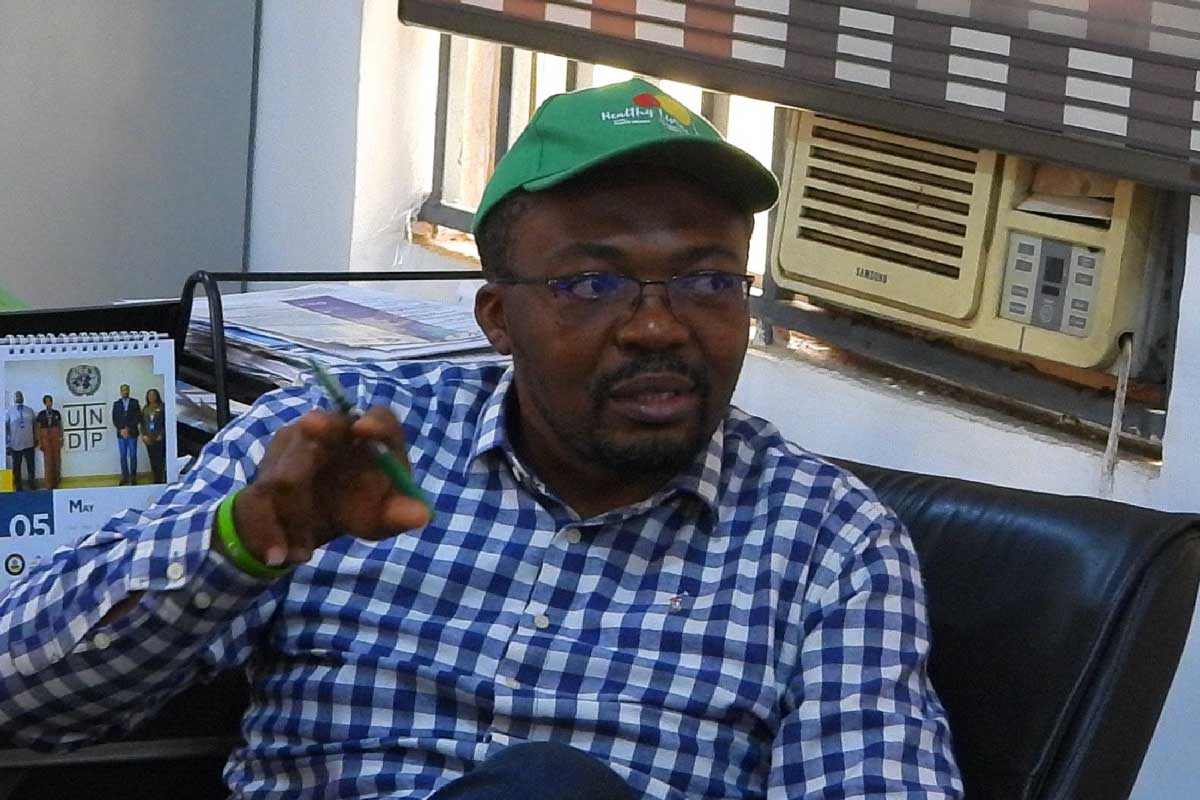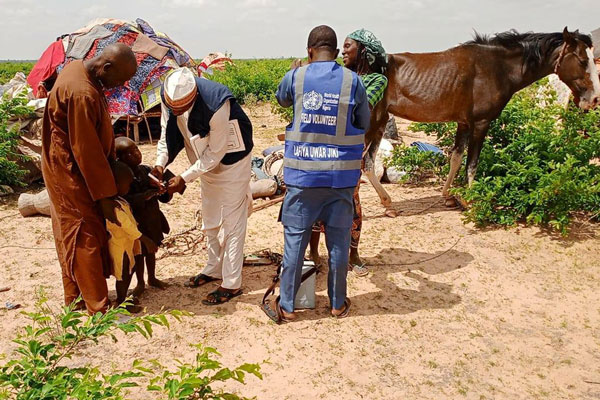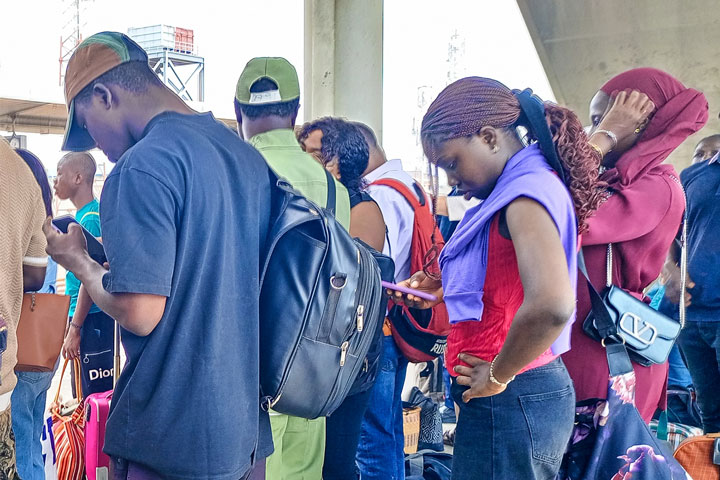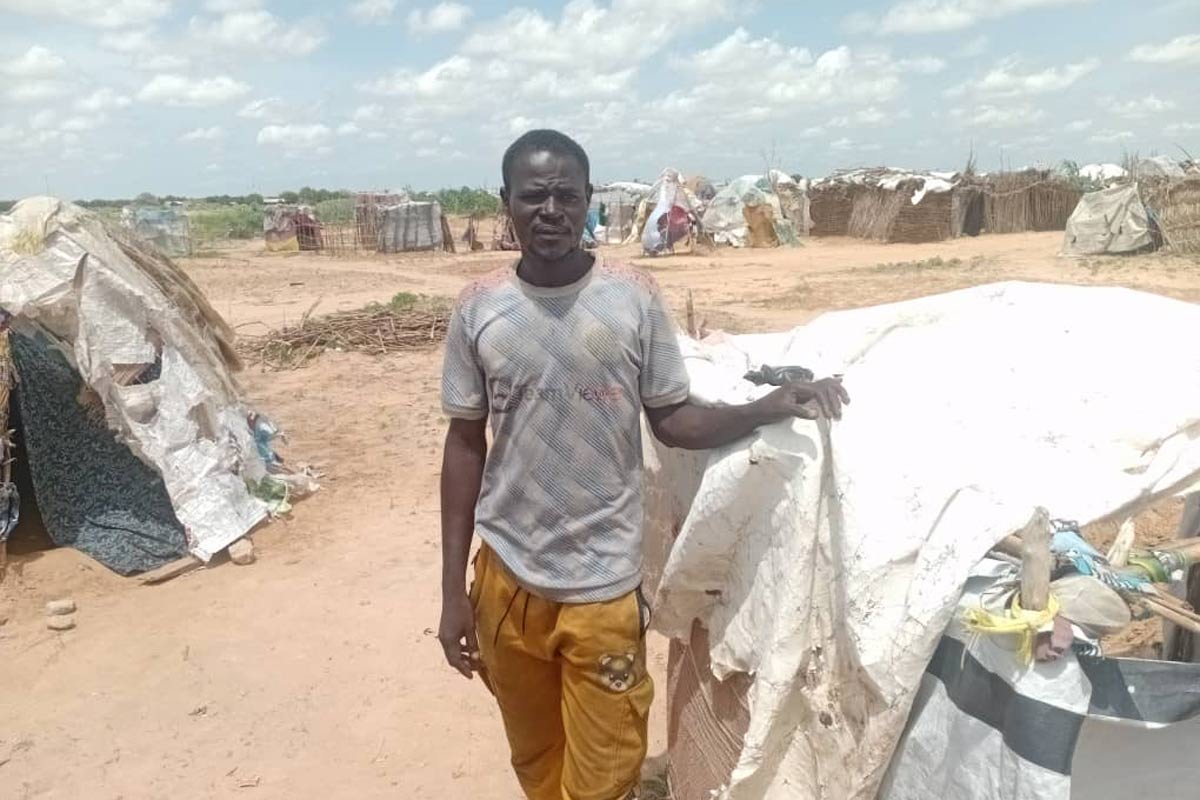In Garkida, northern Nigeria, the dry wind no longer brings death
For years, meningitis brought grief and pain to many families in Garkida, a community in Nigeria’s Adamawa State. That changed with a vaccine.
- 3 July 2025
- 7 min read
- by Jesusegun Alagbe
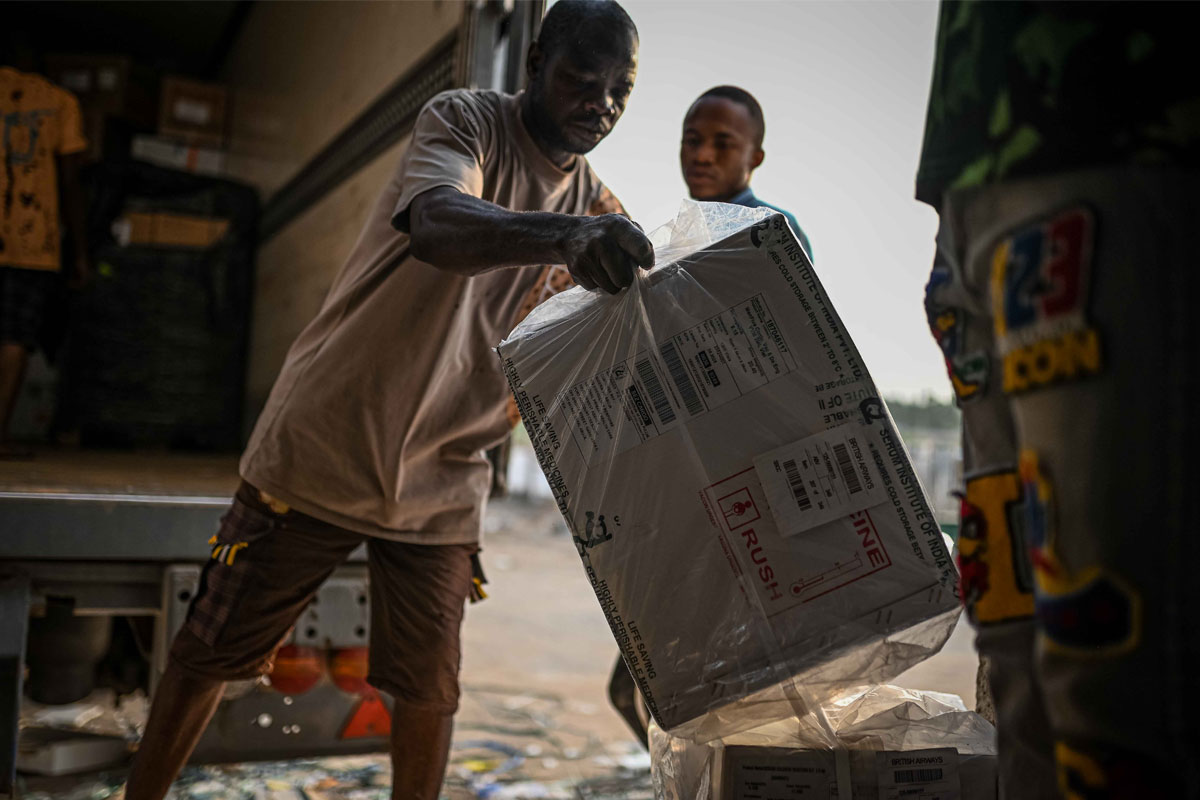
When the dry season approached, people in Garkida community, Gombi Local Government Area of Adamawa State, in north-eastern Nigeria, used to be gripped by fear. It wasn’t the invasion of terrorists or bandits they dreaded – though Garkida locals have been subjected to attacks from rampaging insurgents in the past – but rather, an invisible killer: meningitis.
And so, each year, when the air was parched and dust swept across the streets, Saratudin Banu and her husband would keep their four children indoors. In 2007, a friend’s four-year-old son had played outside one day in the hazy weather. By night, he was down with a severe headache and high fever. Three days later, he was gone. He was diagnosed with meningitis.
“Since that experience, I have never allowed my children to play outdoors in the dry season. I had never heard of meningitis until our friend’s son died of the disease. It then occurred to me that many children who had been severely sick or died after showing the same symptoms that our friend’s son showed might have also been killed by meningitis,” Banu told VaccinesWork.
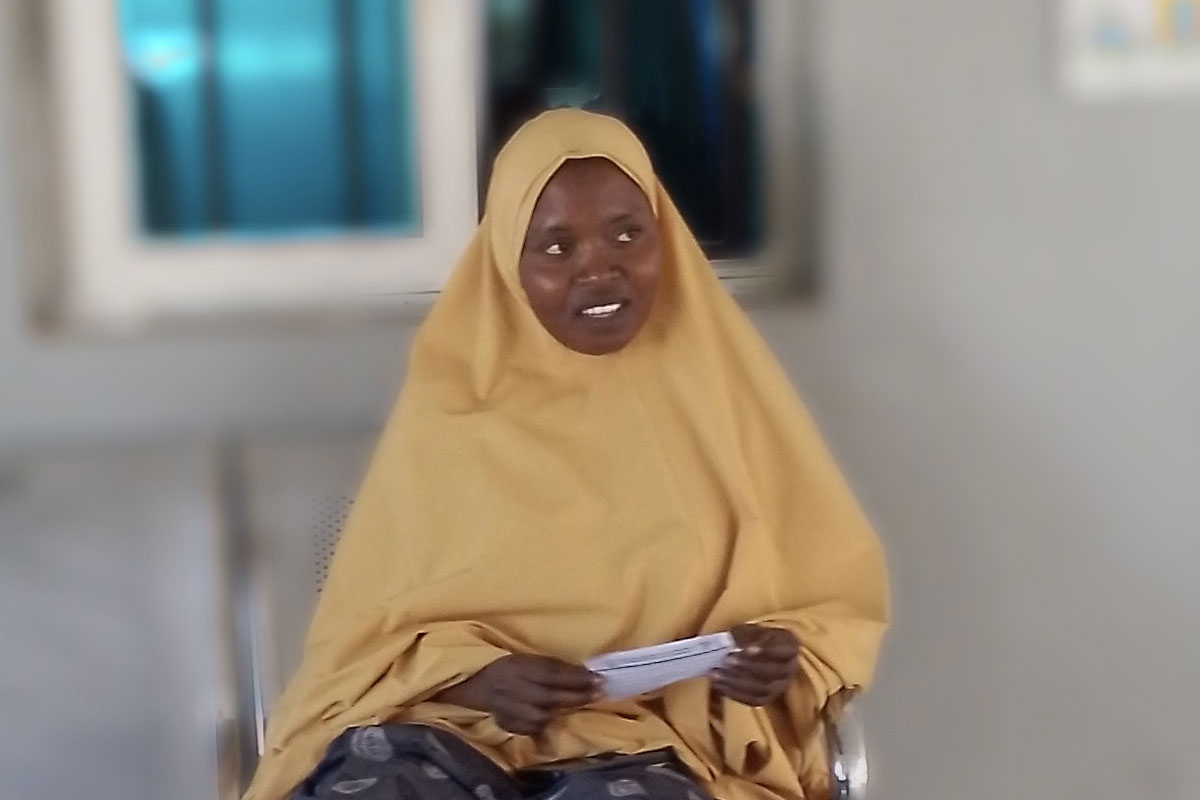
Meningitis is an inflammation of the meninges, the membranes covering the brain and spinal cord, that can have many different causes. Bacterial meningitis is the most serious form, killing as many as one in six sufferers, and leaving one in five to live with lasting complications.
Despite keeping her children indoors, Banu still feared they were not totally safe and quietly hoped there might someday be an intervention that would keep the disease far away from the children of Garkida.
“I observed that one or two of my children would still fall seriously ill with fever and headache around that period, despite taking precautions. Many other children in the community were affected,” she said.
Her hope came alive in 2012 when news went round that the government had sent some health workers to the community to vaccinate the children against meningococcal meningitis using MenAfriVac, a newly developed vaccine at the time.
“Without hesitation, I took my children to the hospital for vaccination. I felt both sad and relieved at the same time. I was sad because I thought that only if my friend’s son had had the chance of being given the vaccine, maybe he would not have died,” Banu said.
A year later when another dry season came, the mother of four said she breathed a little easier. “Before the vaccine, many parents like me lived in fear. You can’t imagine losing your child; it’s a hurt that never goes away. But today, I don’t dread the dry season anymore. Even though I still hear that some children fall ill, the cases are not as rampant as they used to be,” Banu said.
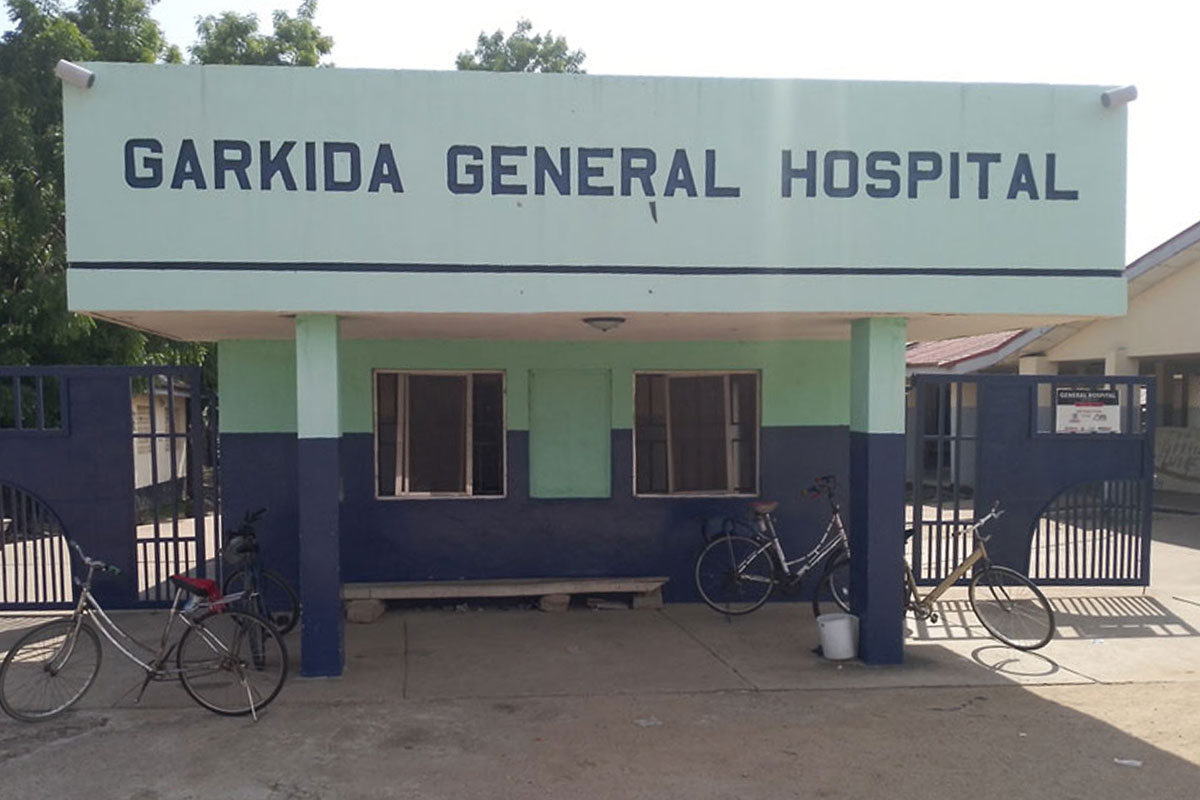
A major enemy
Adamawa State has often struggled with meningitis outbreaks. The state – which borders Cameroon and is known for its mountainous and highland terrain – is among 19 northern states tagged as the ‘meningitis states’, because they are located within Africa’s meningitis belt, a region where meningitis outbreaks are more frequent and severe, according to the Nigeria Centre for Disease Control and Prevention (NCDC).
Nigeria as a whole is located within the meningitis belt, hence the disease is a significant public health concern, according to WHO. Between 2022 and 2023, the NCDC recorded 2,765 suspected cases and 190 deaths. Between October and April 2025, the NCDC reported 2,911 suspected cases and 225 deaths in 24 states, out of which Adamawa State had 38 suspected cases.
Stretching from Senegal in the west to Ethiopia in the east, and comprising 26 countries, the African meningitis belt has historically been swept by major epidemics every five to 12 years, during the dry season. During those outbreaks, as many as 1 in every 100 people was infected, with up to 80% of people succumbing in the absence of treatment.
Killing the killer
However, the fight against the killer disease has made extraordinary strides over the last decade and a half. In Nigeria, vaccines rolled out with support from partners including the Gavi, the WHO and UNICEF have made a colossal difference.
MenAfriVac came first. Rolling out across the meningitis belt beginning in 2010, the vaccine caused a staggering and instantaneous drop in meningitis incidence, eliminating Group A meningococcal disease – the form of the illness that the vaccine protects against – by 2017. But other forms of meningococcal disease exist, and are capable of causing outbreaks. Fortunately, in 2023, a new type of meningococcal vaccine was prequalified for deployment by WHO.
This new vaccine offered broader protection than MenAfriVac, being capable of eliciting immunity against five major strains or groups of the meningococcal bacteria (A, C, W, Y and X) in a single shot.
In a trailblazing move to step up the fight against epidemic meningitis in the northern region, the Nigerian government in April 2025 received over 1 million pentavalent meningococcal conjugate vaccine (Men5CV) doses from the Gavi-funded global stockpile.
This saw Nigeria becoming the first country to roll out the new WHO-recommended Men5CV vaccine, which protects people against five strains of meningococcus bacteria.
From fear to freedom
Thanks to meningitis vaccines, parents like Banu no longer live in fear in Garkida.
Sulei Dan-Boi, a resident, said all his children had been vaccinated and, as a consequence, he does not panic again when the dry season blows in. “The dry season used to cause a nightmare for us in the past. My children were always ill, and I always panicked that something bad might happen to them. But not anymore, since I took them to the hospital for the vaccine,” he said.
Maryam Bello, an official of the Adamawa State Primary Health Care Development Agency at Garkida General Hospital, said meningitis is being fought aggressively in the community with the MenAfriVac vaccine and the newly introduced Men5CV vaccine.
“We have been using MenAfriVac and the newly introduced Men5CV vaccines to combat meningitis in Garkida. We keep preaching the message to members of the community to bring their children from nine months and get the vaccine for the prevention of meningitis.
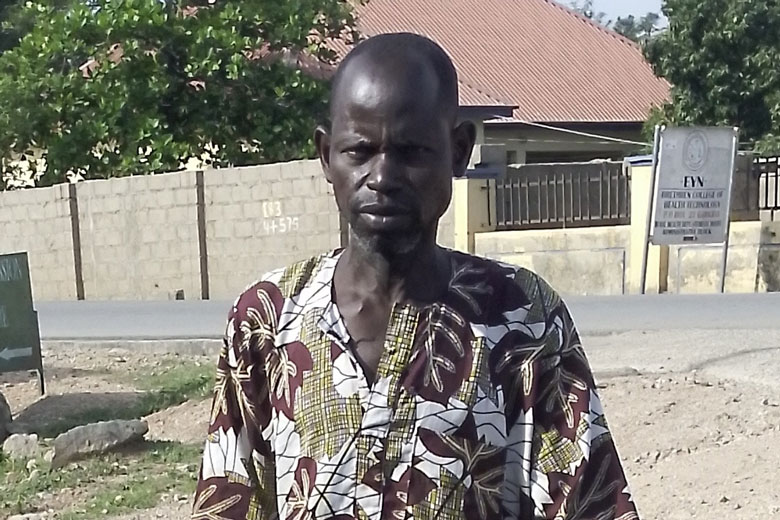
“We also advise parents to monitor their children for meningitis, especially during the dry season, for meningitis symptoms such as high fever, headache and neck stiffness. If the symptoms present, they should not hesitate to bring their children to the hospital. They should not go for herbal treatment because some do that. The government is trying hard to ensure there is continuous availability of the vaccine. Parents should ensure their children are all vaccinated,” Bello told VaccinesWork.
Sanda Son Pukuma, a nurse at the Garkida General Hospital, told VaccinesWork that the community had experienced severe meningitis outbreaks in the past, but that the number of cases they treat at the facility has reduced in recent years.
“Meningitis has been a common phenomenon in our community for ages. But we see fewer cases each year, being that many parents recognise the importance of vaccinating their children. We only experience a handful of cases these days. Meanwhile, as the children are administered the vaccine, we usually encourage their parents to practise good hygiene, including clearing the drainage and ensuring good ventilation. Everyone in the community is expected to play their part in ridding our community of meningitis,” he said.
Have you read?
Mishal Solomon, the Medical Record Officer at Garkida General Hospital, said some years back, the facility used to record as high as 30 meningitis cases a month. However, the number has dropped to about three to five in recent times.
“Meningitis caused serious problems to our community; parents would bring their children here, crying. The vaccine brought freedom to the community,” he said.
Creating safe communities
When the Men5CV vaccine launched recently, Dr Tedros Adhanom Ghebreyesus, WHO Director-General, said the new vaccine holds the potential to change the disease’s trajectory, prevent future outbreaks, and save many lives, adding that the Nigeria roll-out “brings us one step closer to our goal to eliminate meningitis by 2030”.
Professor Muhammad Ali Pate, the Minister of the Ministry of Health and Social Welfare, said the new vaccine provides health workers with a new tool to stop the meningitis outbreak and also put the country on a path to elimination.
